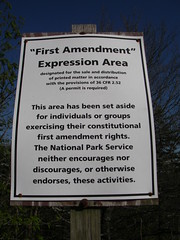The purpose of this week’s blog is to tell you that there’s going to be a real blog next week.
I’m sorry kids, but I’ve had no inspiration this week, and what few ideas I have are being brutally bashed by my overtaxed mind. Â My friend gave me a slew of great law-related ideas to write about. Â I tucked them away for future use. Â Today it feels like everything I do is law related – working at my internship, applying for judicial clerkships, and contemplating my future in the legal profession. Â I know that not everything I do is law related, but it feels that way today. Â I need a mental break from writing about the law.
Captain Kirk said, “The more complex the mind, the greater the need for the simplicity of play.” Â He is absolutely right. Â I am, therefore, giving myself the week off from blogging. Â I’ll be back next week. Â Instead I’m going to go sit in my backyard, with my feet dangling in my pool, and relax while watching the stars.
So I don’t feel like I’m not completely neglecting my readers, I’m sharing the lyrics of my law school theme song:  The Beauty of Your Dreams.  The music was written by Joan Szymko and the lyrics were adapted from the writings of Eleanor Roosevelt.  My choir performed this song years ago.  It helps calm me down when the world gets stressful.
I will make a prayer to ask what I can do,
I will make a prayer to ask for courage to follow the light
as it is given to me.
You gain courage and strength and confidence
every time you look fear in the face.
You must do the thing you think you cannot do.
Life must be lived!
Cast out fear and face the unknown.
Face the unknown with courage
and integrity and a high heart.
Believe in your dreams,
believe in the beauty of your dreams.
The future belongs to those who do believe
in the beauty of their dreams.
See you next week.
– Ruthie


![Reblog this post [with Zemanta]](http://img.zemanta.com/reblog_e.png?x-id=38c6d8a4-be05-4572-ab01-51474b99805d)